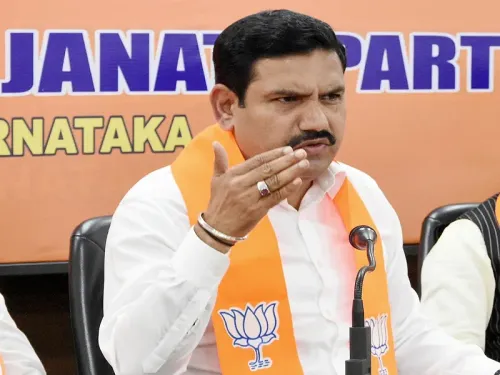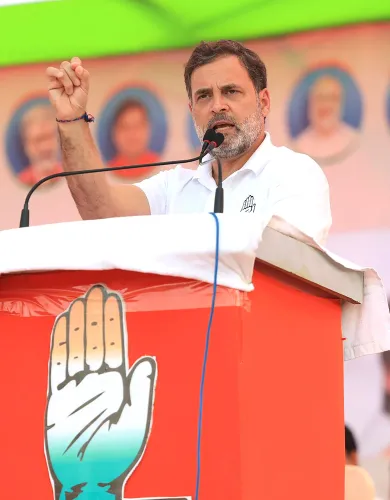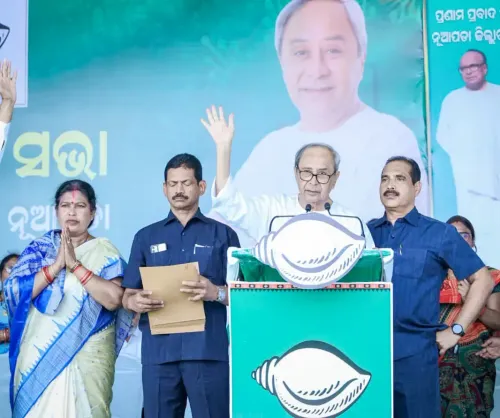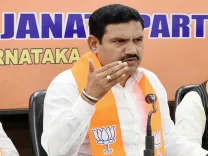Tamil Nadu Saw Highest Murder Rate in 2012 During AIADMK Governance: CM Stalin
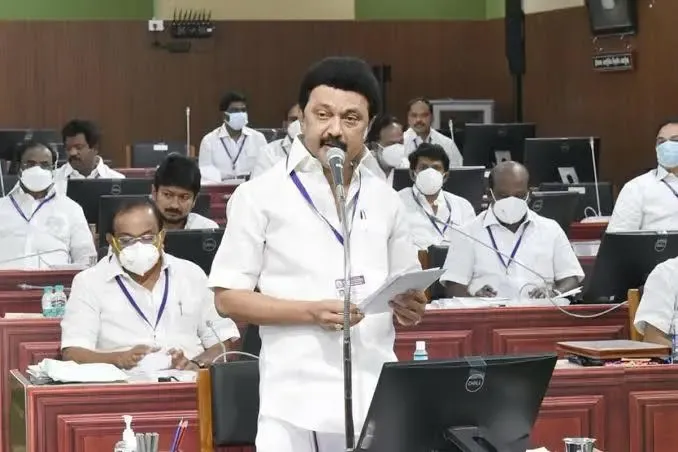
Synopsis
Key Takeaways
- In 2012, Tamil Nadu experienced its highest murders (1,943).
- 2024 saw the lowest murder count in 12 years (1,540).
- Notable decline in serious crimes attributed to DMK governance.
- Manipulated crime narratives are spreading on social media.
- Detailed explanations provided for specific murder cases.
Chennai, March 20 (NationPress) The Chief Minister of Tamil Nadu, M.K. Stalin, stated that the highest number of murders in the state was recorded in 2012 under AIADMK governance.
In response to a query from the Leader of Opposition and AIADMK leader Edappadi K. Palaniswami (EPS) during the Assembly session, Stalin compared murder statistics from 2012 to 2024. He noted that 2012 had the highest number of murders in the last decade, totaling 1,943 cases, while 2013 recorded 1,927 cases.
Even during the Covid-19 lockdown in 2020, Tamil Nadu reported 1,661 murders under the AIADMK administration.
In contrast, Stalin highlighted that 2024 registered the lowest murder count (1,540) in the past 12 years, attributing this reduction to strict law enforcement under the DMK government.
The Chief Minister stressed that the data illustrates the decline in law and order during the previous AIADMK tenure, countering the opposition's attempts to politicize isolated murder incidents. He elaborated that both murder and attempted murder cases have significantly reduced in recent years.
In 2023, Tamil Nadu reported 49,280 cases of murder or attempted murder, but this number plummeted to 31,498 in 2024, showcasing a notable decrease of 17,782 cases within a year.
"There is an orchestrated effort to incite fear by disseminating selective crime footage on social media. However, actual statistics reveal a 6.8 percent reduction in murder cases in 2024 compared to the preceding year. Murders have decreased by 109 cases, while revenge killings have dropped by 42.72 percent.
Addressing the opposition's concerns regarding four specific murder cases, the Chief Minister provided clarifications and stated that preliminary investigations indicated the Coimbatore incident was a suicide, not a murder, while the Madurai murder investigation is still ongoing.
Regarding the Sivagangai incident, Stalin noted it was a murder linked to family rivalry.
In the case of the Erode highway murder, Stalin detailed an attack involving history-sheeter John alias Chanakya from Kitchipalayam in Salem. Chanakya, who was on conditional bail granted by the Madras High Court, was traveling to Tirupur with his wife after reporting to the Annathanapatty police station. They were ambushed on the highway, resulting in fatal injuries to Chanakya, while his wife was hospitalized after sustaining injuries.
Following the attack, police initiated an investigation and apprehended four suspects - Saravanan, Sathish, Boopalan, and Myna Karthik. When officers confronted them near Pachapalli, the suspects reportedly attacked the police, prompting an Inspector to fire in self-defense, injuring Sathish, Saravanan, and Boopalan. The injured were transported to Coimbatore Government Hospital after receiving initial care at Perundurai GH. Preliminary investigations suggest the Erode highway murder was an act of revenge.
Chanakya was the second suspect in the 2020 murder of another history-sheeter, Chelladurai, in Salem, and the attack on him appears to be connected to this prior crime.
Stalin asserted that his government has fortified law enforcement, leading to a significant decline in serious crimes across Tamil Nadu. He urged the public not to be swayed by politically motivated narratives and social media rumors.
"The facts are evident - crime rates have decreased, and our police force is responding promptly to offenders. The citizens of Tamil Nadu acknowledge the advancements in law and order," he affirmed.


